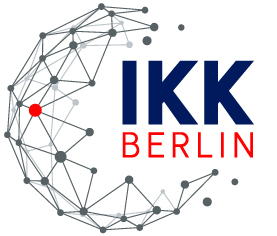Bundeskartellamt adopts guidelines on the setting of fines
26.09.2006
Today the Bundeskartellamt published its guidelines on the setting of fines. In line with the 7th amendment to the Act against Restraints of Competition which came into force in July 2005 the level of fines imposed for violations of competition law has been raised to amounts of up to 1 million €. In addition, certain violations can be punished by a fine of up to 10 per cent of the total turnover. German law has thus been harmonised with European law and the former level of penalty, based on a maximum level of three times the additional proceeds generated by a cartel, has been abolished.
The guidelines specify how the Bundeskartellamt will apply the new provisions on fines in the future. The Bundeskartellamt’s guidelines are modelled on the practice of the European Court of Justice and the European Commission. Before the amendment to the ARC came into force the fines imposed by the Bundeskartellamt under the then applicable law had been noticeably lower than those imposed by the Commission. The revised ARC provisions have eliminated the differences between the maximum levels of fines possible under German and European competition law.
The calculation of fines is based on the so-called basic amount. This can amount to up to 30 per cent of the turnover which the companies concerned achieved with the products or services connected with the infringement. This provision is identical with its counterpart in the European guidelines for setting fines. The calculation of the exact basic amount takes into account the gravity and duration of the infringement. The final amount is calculated in a second step. This is achieved by increasing or reducing the basic amount on the basis of aggravating and extenuating circumstances. It is also possible to waive or reduce a fine if a company that participated in the infringement submits an application for leniency.
Furthermore the guidelines on the setting of fines include the following rules:
• Apart from horizontal and vertical competition restraints and unilateral anti-competitive behaviour (abusive practices, unfair hindrance, boycott, etc.), the guidelines also cover infringements in the area of merger control.
• In the case of price-fixing and quota cartels, territorial and customer agreements and other severe horizontal competition restraints, the basic amount is generally set in the upper range of the maximum possible basic amount.
• For deterrent purposes the basic amount can be raised by up to 100 per cent.
• In its calculation of the maximum limit of 10 per cent of a company’s total turnover the Bundeskartellamt takes into account the turnovers of affiliated companies.
The President of the Bundeskartellamt, Dr. Ulf Böge, stated: “With its guidelines on the setting of fines the Bundeskartellamt intends to further improve legal certainty by clarifying how the authority is going to penalize future violations of competition law. The guidelines are also meant to make it clear that cartel agreements pay off less and less as companies must now expect the Bundeskartellamt to harmonise its practice of setting fines with the European rules and to impose much higher fines in the future. Moreover, the Network of European competition authorities and the leniency programme have led to an increased number of uncovered illegal cartel agreements. If, in addition, companies consider the tighter statutory provisions on damages, they should come to the following conclusion: Stay away from cartel agreements, they involve too many risks and can be very expensive.”

